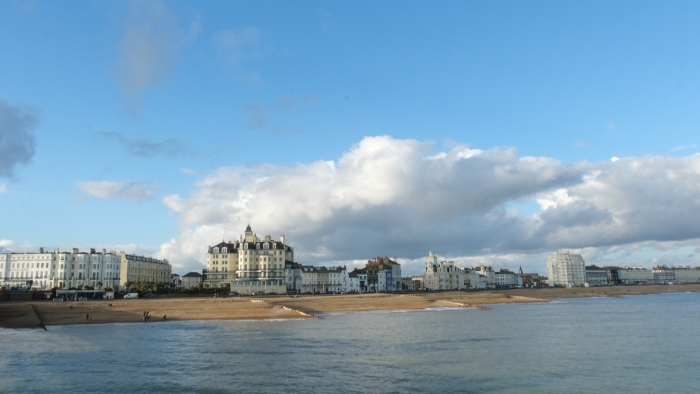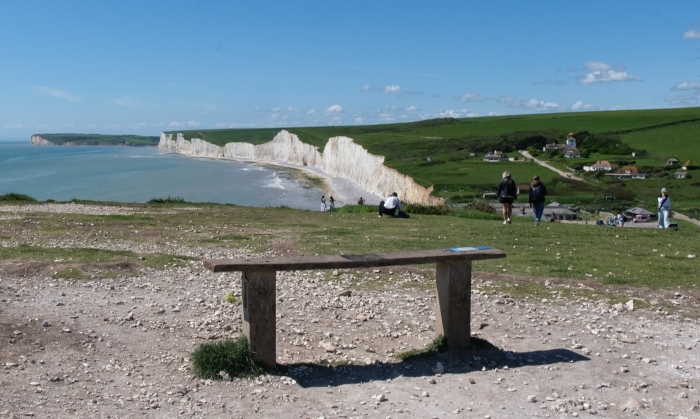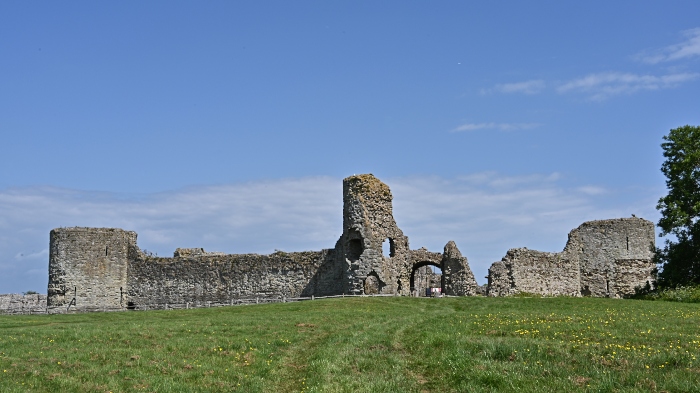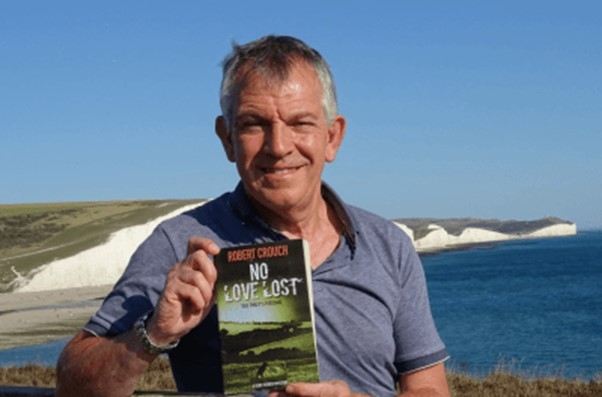
By Robert Crouch
In late February in 1983, I made a 310-mile journey from Manchester to Eastbourne, knowing it could change my life. Excited and keen to get to the interview, I stepped out of the train station into a gloriously sunny morning.
In Manchester, such weather would have made the news headlines.
I applied for the job as a district environmental health officer (EHO) to advance my career. Well, that’s what I said during the interview. When they asked me to return at 3pm, I hesitated, aware of the long journey home. But as they intended to offer the job to the successful candidate, I agreed.
With a couple of hours to kill, I walked to the seafront, surprised by the pleasant and stylish array of Victorian hotel buildings. With the bright gardens, long promenade and impressive pier, I could imagine myself living and working here.

Then I noticed the pebble beach, stretching as far as the eye could see.
Where was the sand?
Life in the industrial north had not prepared me for this surprise, or the ones that followed when I moved to Eastbourne. I’ll never forget the baffled expressions of the staff in the fish and chip shop when I asked for a meat and potato pie.
Apparently, this northern delicacy hadn’t followed me south.
Former colleagues had already warned me that southern beer didn’t come with a creamy head. But no one warned me of the hidden dangers in the laundrette. On my first visit, faced with a number of choices and programmes, I let the EHO in me take over. Not only did I want clean clothes, I wanted to make sure any bacteria were destroyed.
No one told me a hot wash would shrink all my jumpers.
At work, my main role was to ensure food businesses like restaurants, hotels, pubs and shops met hygiene standards to produce and sell safe food. My inspections took me along the seafront hotels and smaller guesthouses behind.
On the weekends when I didn’t return north for a meat and potato pie, I explored the peace and tranquillity of the South Downs. With names like Beachy Head and Shooters Bottom, the writer in me envisaged dramatic thrillers, ending in clifftop climaxes.

A new job in the rural district of Wealden took me down winding country lanes into villages with names like Wilmington, Chiddingly and Alfriston. Eager to explore, I roared down the lane in my Ford Capri, almost driving into the back of a line of horses and their riders.
Lesson learned, I explored my new district at a more sedate pace. In Pevensey, a few miles from Eastbourne, I discovered the ruins of a castle, built by William the Conqueror, following his victory in 1066. Coming from a part of the world where the history was woven into the industrial revolution, I’d never seen or visited a castle before.

It was the first of many experiences that brought Sussex to life. Steeped in history and tradition, I immersed myself in the origins of places and their names, the characters who lived there, the buildings and architecture that dated back centuries. Best of all was the breath-taking scenery of the South Downs and the Weald of Kent and Sussex.
Tales of smugglers, bringing contraband inland along the river from Cuckmere Haven on the coast to Alfriston, fascinated me. Perhaps it was my inspection of the kitchen at Ye Olde Smugglers Inne that brought the stories to life.
Or maybe it was the writer in me, asking the publican how her pub got its name.
The more I learned, the more I wanted to write about these places.
One morning, after a hygiene inspection of a village tearoom, I sat with a cup of coffee, savouring the aroma of warmed scones. Around me, the congenial chatter, punctuated by the clink of tea cups, complemented the tranquillity of the gentle hills beyond.
I imagined the door bursting open. A breathless man staggers in, claiming he’s found a dead body.
What if the local environmental health officer went to check the body? What if he was drawn into a murder investigation?

No accidentThe idea occupied my thoughts as I drove back to the office. An environmental health sleuth would offer readers something different a crowded crime fiction market, filled with traumatised police detectives and world-weary private eyes. I could treat readers to glimpses of my work and show them how an ordinary person could solve complex murders.
The villages and settings in my South Downs district and beyond inspired scenes and plots in the novels which followed. Beauty spots on the coast, like Birling Gap and the famous white cliffs of the Seven Sisters, became regular settings in novels like No Love Lost.

The smuggling history in Alfriston became part of the investigation in No Remorse. Villages like Alfriston, East Dean, Jevington and Herstmonceux made regular appearances, completing my journey from hygiene to high drama.
I’d love to share my experiences and fascination with the places, buildings, stories and people who live in this part of the world.
You can find out more about me at https://robertcrouch.co.uk.
